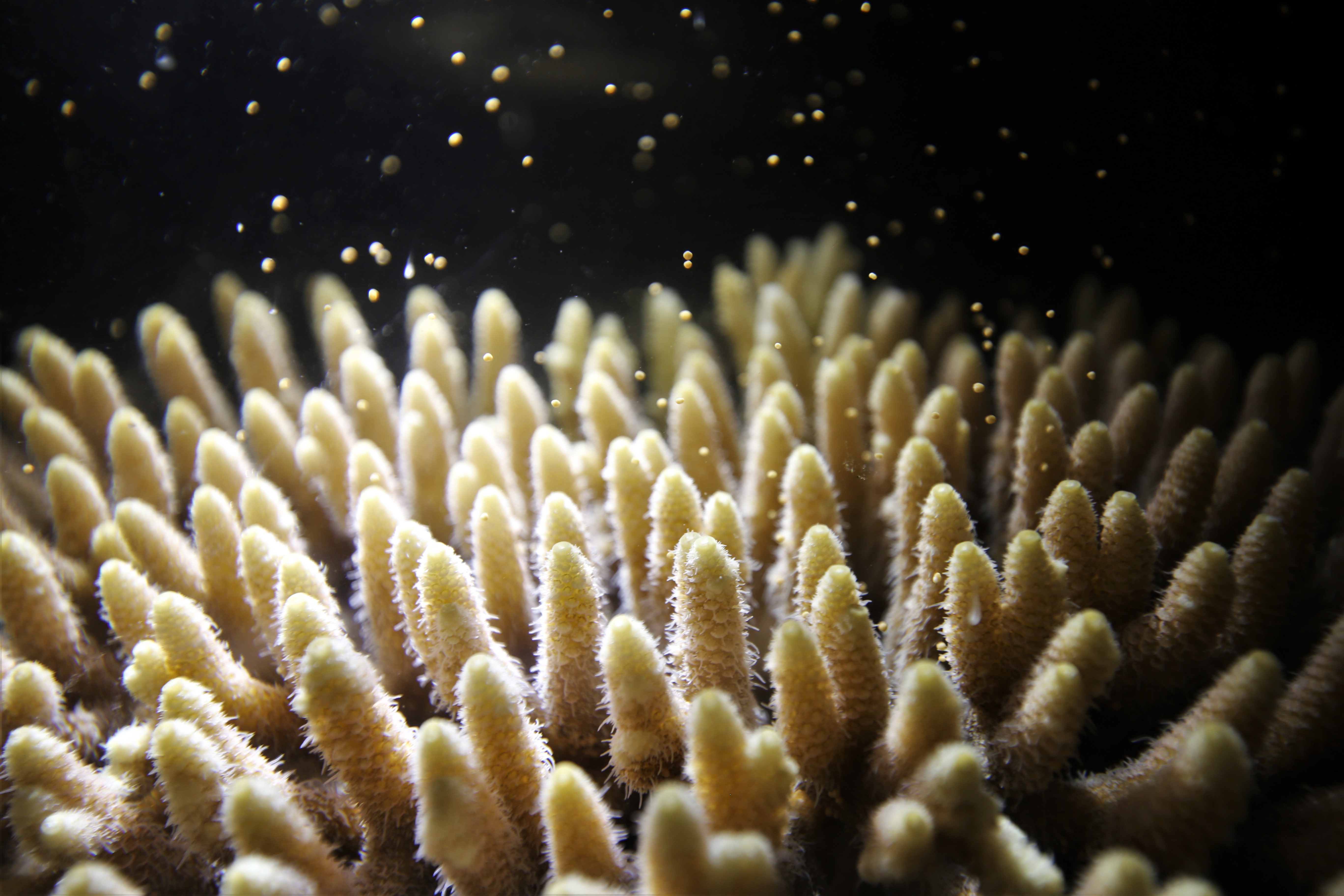
Engineering bleaching resistance in corals
This project is focused to further understand genetic mechanisms that support an enhanced thermal tolerance of coral associated microalgae.
Coral reefs provide a habitat to ~25% of the species in the marine environment, support the livelihood for ~500 million people on the planet and are of significant economic and cultural value. However, corals have experienced mass bleaching and mass mortalities due to high seawater temperatures caused by climate change. Climate models predict that further warming will continue and mass coral bleaching will become an annual event on most reefs within this century. According to the IUCN, coral reefs are the ecosystems moving most rapidly towards extinction.
For their survival, corals rely on their symbiosis with single celled microalgae. The microalgae provide most of the coral’s nutrition via translocation of photosynthates and also play a crucial part in the thermal tolerance of corals. It is however unclear which genomic adaptations directly contribute to an increased thermal tolerance of the coral and their symbiotic microalgae.
This project investigates molecular mechanisms and genomic adaptations that lead to an increased thermal tolerance of symbiotic microalgae. Using molecular techniques, such as genome sequencing, transcriptomics and amplicon sequencing, we analyse adaptations among thermally tolerant and sensitive microalgae species and their associated bacterial communities. This project also compares physiological characteristics of thermally tolerant and sensitive microalgae with flow cytometry and photosynthetic measurements. We cultivate the microalgae in the PC2 laboratory at Macquarie University for direct comparisons and experimental assessments of their thermal tolerance capacities.
The outcomes will provide more information regarding the molecular mechanisms that can reduce heat stress impacts for the microalgae. Due to the quick deterioration of coral reefs, the understanding of adaptations that support coral thermal tolerance is a key factor in developing conservation management strategies and associated interventions for reef recovery.
Funding: Commonwealth Scientific and Industrial Research Organisation (CSIRO), Macquarie University
Partners: Commonwealth Scientific and Industrial Research Organisation (CSIRO), Synthetic Biology Future Science Platform, ARC Centre for Synthetic Biology, University of Melbourne, Australian Institute of Marine Science.
Contact: Dr Patrick Buerger, patrick.buerger@mq.edu.au